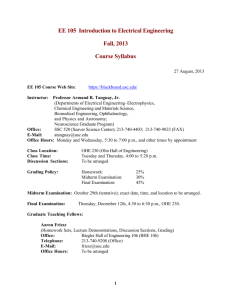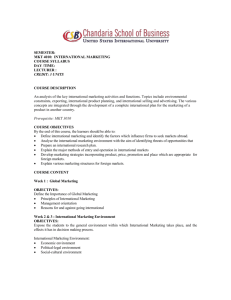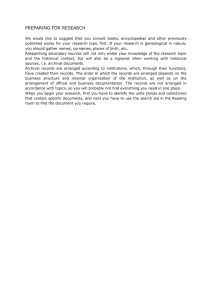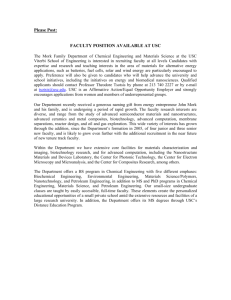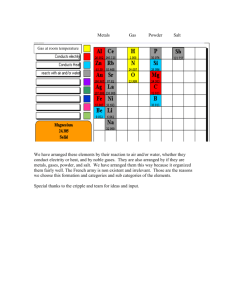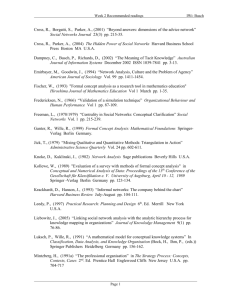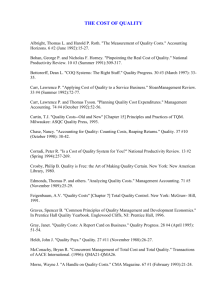EE 105 Introduction to Electrical Engineering Fall, 2009 Course
advertisement
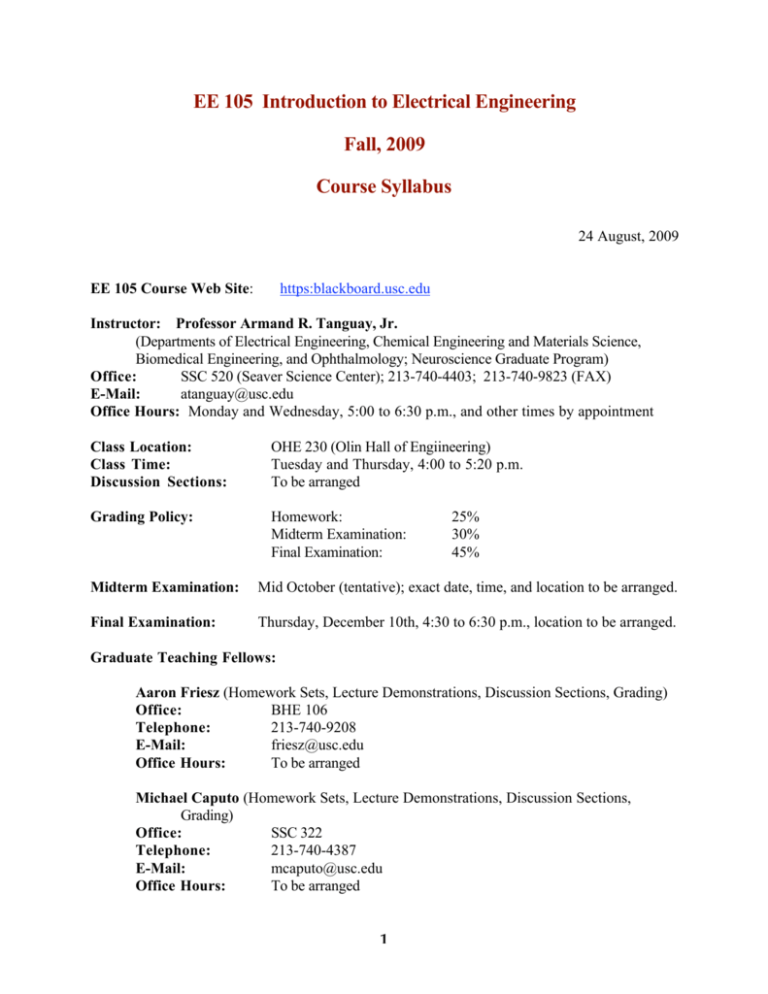
EE 105 Introduction to Electrical Engineering Fall, 2009 Course Syllabus 24 August, 2009 EE 105 Course Web Site: https:blackboard.usc.edu Instructor: Professor Armand R. Tanguay, Jr. (Departments of Electrical Engineering, Chemical Engineering and Materials Science, Biomedical Engineering, and Ophthalmology; Neuroscience Graduate Program) Office: SSC 520 (Seaver Science Center); 213-740-4403; 213-740-9823 (FAX) E-Mail: atanguay@usc.edu Office Hours: Monday and Wednesday, 5:00 to 6:30 p.m., and other times by appointment Class Location: Class Time: Discussion Sections: OHE 230 (Olin Hall of Engiineering) Tuesday and Thursday, 4:00 to 5:20 p.m. To be arranged Grading Policy: Homework: Midterm Examination: Final Examination: 25% 30% 45% Midterm Examination: Mid October (tentative); exact date, time, and location to be arranged. Final Examination: Thursday, December 10th, 4:30 to 6:30 p.m., location to be arranged. Graduate Teaching Fellows: Aaron Friesz (Homework Sets, Lecture Demonstrations, Discussion Sections, Grading) Office: BHE 106 Telephone: 213-740-9208 E-Mail: friesz@usc.edu Office Hours: To be arranged Michael Caputo (Homework Sets, Lecture Demonstrations, Discussion Sections, Grading) Office: SSC 322 Telephone: 213-740-4387 E-Mail: mcaputo@usc.edu Office Hours: To be arranged 1 EE 105 Introduction to Electrical Engineering Prerequisite or Corequisite: Math 125 Calculus I Required Textbooks: Dick White and Roger Doering, Electrical Engineering Uncovered, 2nd Edition, Prentice Hall, Englewood Cliffs, New Jersey, (2001). Roman Kuc, The Digital Information Age: An Introduction to Electrical Engineering, Brooks/Cole Publishing Company, Pacific Grove, California, (1999). Excellent Recommended Texts: David Cyganski and John A. Orr, with Richard F. Vaz, Information Technology: Inside and Outside, Prentice Hall, Upper Saddle River, New Jersey, (2001). J. David Irwin and David V. Kerns, Jr., Introduction to Electrical Engineering, Prentice Hall, Englewood Cliffs, New Jersey, (1995). John G. Truxal, The Age of Electronic Messages, MIT Press, Cambridge, Massachusetts, (1990). 2 EE 105 Introduction to Electrical Engineering EE 105 Course Outline (Topics): 1. Overview of Electrical Engineering (EE as a Discipline) 11. Key Computational Parameters: Throughput, Bandwidth, Storage Capacity 2. Information and Communication 3. Information Representations (Language) 12. Main and Peripheral Device Buses; Data Storage; CPUs 4. Encryption and Decryption 13. Digital Imaging 5. Signals in the Time Domain: Analog and Digital 14. Introduction to Direct Current (DC) Linear Circuits 6. Signals in the Frequency Domain: Tones, Spectrum Analyzer 15. Circuit Parameters: Current, Voltage 7. Signal Modulation; AM and FM Radio, TV 16. Device Characteristics: Resistance, Capacitance, Inductance 8. Communications Example: HDTV 17. Alternating Current (AC) Circuits 9. Introduction to Computation: Computing and Computing Architectures 18. Semiconductor Devices: Diodes, Transistors 19. Semiconductor (VLSI Circuit) Fabrication 10. The Computer as a Communications Network 3
